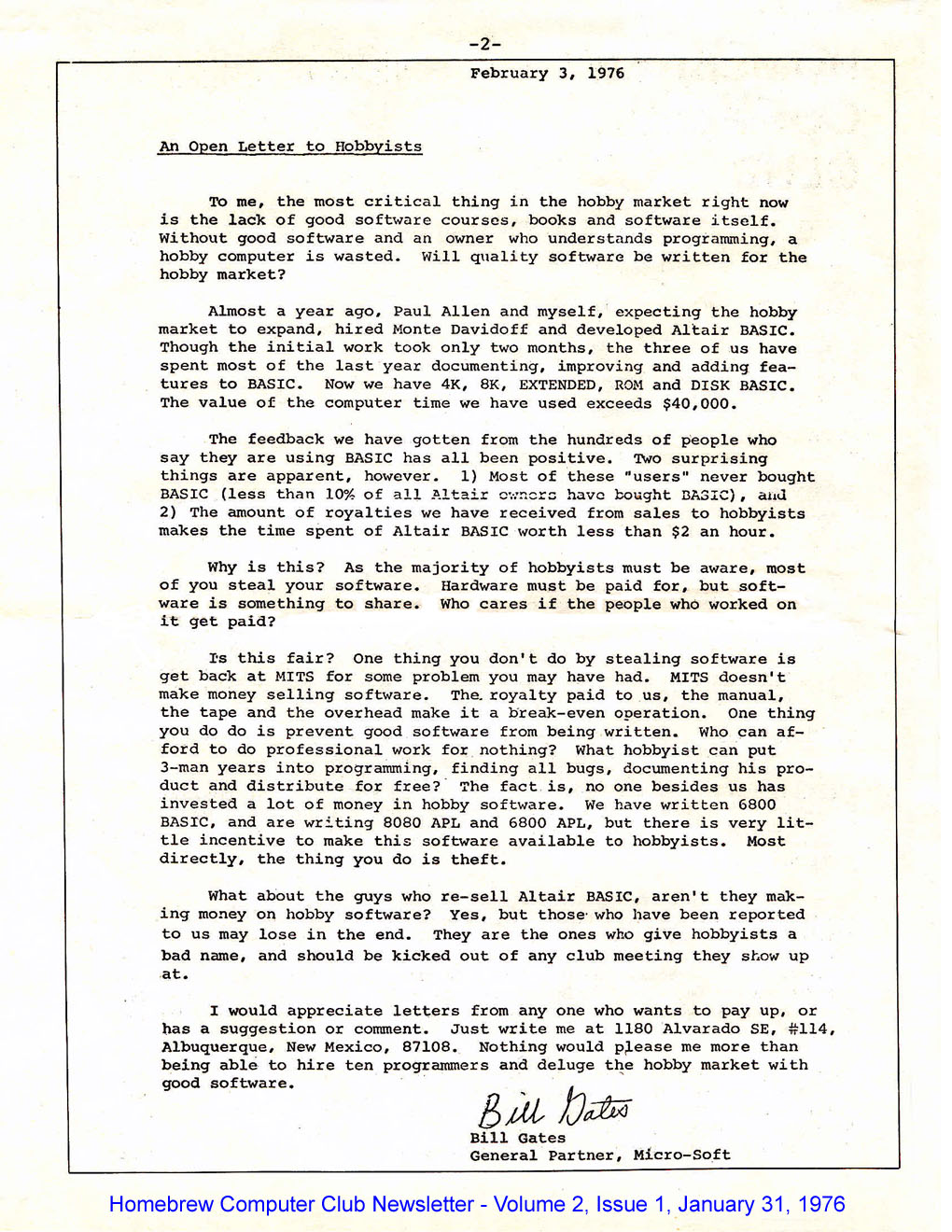 Sharing Ideas Is Fine Up To A Point:
Sharing Ideas Is Fine Up To A Point:
The Homebrew Computer Club (a collection of computer enthusiasts) believed that their ideas should be shared, exchanged, and disseminated. It was coordinated by people who believed that like-minded nerds should all share information for free. They believed that there should be no commerce at the Homebrew Computer Club. Wozniak supported that view, he wanted the Apple I to be shared for free with other people at the Homebrew meetings. Others disagreed. Bill Gates wrote a letter to the Homebrew Computer Club saying the opposite; that they should stop stealing the programming that he and his partners had created.
The letter argued “Who can afford to do their professional work if everyone is stealing it?” Steve Jobs agreed with Bill Gates about sharing ideas. Jobs convinced Wozniak to follow a closed approach, and to sell computers rather than sharing them. Jobs asked that Woz stop sharing the schematics information regarding the Apple I with others, for that reason. Jobs decided to sell these computers by buying 50 panels for circuitry. The closed system had major benefits in his later career. Starting in 1999, Apple created iMovie, FinalCut Pro, iDvd, iPhoto, GarageBand, (most importantly) iTunes, and the iTunes Store. The personal computer was morphing into a lifestyle hub, and only Apple was positioned to create a full (CLOSED) experience where the product was simple, and enjoyable. Therefore, sharing is great up to a certain point.
![]() This is an analysis based on Steve Jobs by Walter Isaacson and other sources of research. Enjoy.
This is an analysis based on Steve Jobs by Walter Isaacson and other sources of research. Enjoy.![]()

